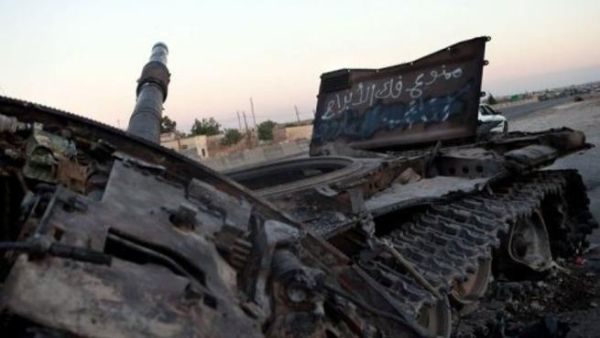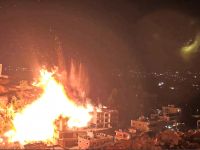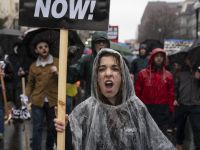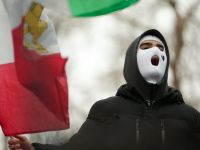Intense bombing rocked Saturday the Syrian province of Aleppo (north) while at least two people were killed at the border in northern Lebanon. Violence in the two neighboring countries has left at least 18 dead, including a teenage girl in Lebanon. In addition, dozens were injured.
Several towns in the province of Aleppo were awakened at night by the sound of artillery fire. It was the "most violent bombardments since military operations began a few months ago in the region," according to the Syrian Observatory for Human Rights (SOHR). "One civilian was killed and dozens more were injured, while residents fled the houses where there is neither no water nor electricity and where sanitary conditions are difficult," said the SOHR, adding that five soldiers and two rebels were killed in other incidents in the region.
In addition, three civilians were killed in Hama (center), two in Damascus, one in Deir Ezzor, one in Deraa (south) and another in Idleb (north), according to SOHR. On Friday, the violence killed at least 93 people, including 60 civilians and 26 soldiers, the source said.
In northern Lebanon, on the border with Syria, a teenage girl and an eight year old girl died while ten were injured in clashes and explosions, according to security sources. The Syrian television, for its part, reported about an "infiltration attempt" from Lebanon and said "dozens of terrorists" killed or wounded.
"Nadia al-Owaishi, aged 19 was killed at dawn by a shell while she was at her home in Wadi Khaled", 185 km north of Beirut, said a local security source, noting that "the shots came from the Syrian territory." The source said the shells and gunfire also wounded four other people. According to the Lebanese news agency, three of those injured are children.
Meanwhile, on Friday in Paris, some 100 representatives of Western and Arab countries and organizations, met for the third time in as part of the Friends of the Syrian People group. They emphasized that Syrian President Bashar al-Assad should relinquish power." In this context, they urged the Security Council to adopt an "emergency" and a binding resolution to enforce international agreements on political transition in Damascus, under the threat of sanctions or even a use of force.
The UN chief Mr. Ban ki-Moon for his part, recommended that the observer mission in Syria (MISNUS), whose operations are suspended for nearly a month due to the increased violence would be "redirected" to a more political role, with a "small military component."
Mr. Ban wants to "maximize the capabilities of the MISNUS to facilitate political dialogue" between the government and opposition in Syria and also plans to "redeploy" observers from the ground to Damascus in order "to minimize risk."







